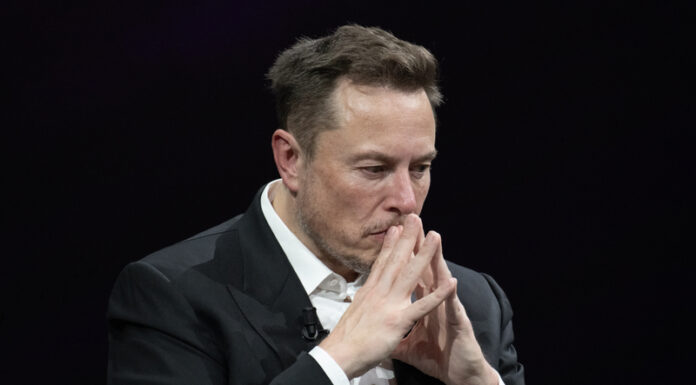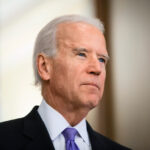Philip Low, a former associate of Elon Musk, has issued a cautionary message to President Donald Trump regarding Musk’s propensity for retribution. Despite a recent public reconciliation, Low anticipates that Musk will continue efforts to undermine Trump’s administration.
Low, a 45-year-old neuroscientist and founder of the brain-monitoring company NeuroVigil, ended his advisory role with Musk’s company on December 17, 2021. Having known Musk for 14 years, Low dismissed the notion of a genuine reconciliation between Musk and Trump, labeling it “purely cosmetic” and transactional.
In discussions with reporters, Low noted Musk’s behavior often involves seeking control and establishing rival entities when unable to dominate. He characterized Musk as obsessive and inclined to hold grudges, which he suggests makes Musk a threat to political allies who defy him.
This warning comes amid a political conflict between Musk and Trump that began in early June concerning Trump’s “One Big Beautiful Bill.” Musk has consistently criticized the 940-page spending package, describing it as “a disgusting abomination” and threatened to establish a new political party if it passed Congress.
The relationship between Low and Musk deteriorated after Low removed Musk from NeuroVigil’s advisory board, which prevented him from exercising stock options that might have harmed the company. This occurred as Musk launched Neuralink, a competing brain implant company, and sought to distance himself from earlier investments.
Low’s criticism of Musk intensified in January 2025 after Trump’s post-inauguration rally on January 20, which some described as featuring Nazi-style salutes. Low, whose father survived the Holocaust, privately confronted Musk before publishing a viral 2,000-word open letter condemning his actions.
The letter portrayed Musk as having an insatiable “lust for power” and accused him of destabilizing organizations he cannot control. Low outlined Musk’s strategy of investing in companies, attempting to undermine them, and creating competing entities when takeover efforts fail.
The Musk-Trump political conflict escalated in early June when Trump proposed ending government contracts with Musk’s companies, SpaceX and Tesla. Musk, in response, threatened to decommission SpaceX’s Dragon spacecraft, the only American vehicle capable of transporting astronauts to the International Space Station, and later claimed Trump would have lost the 2024 election without his financial support, suggesting the president should be impeached.
Musk donated approximately $288 million during the 2024 election cycle, becoming the largest individual political donor in the U.S. His America PAC initially promised active involvement in the 2026 midterm elections, though Musk reduced these plans just before his public dispute with Trump.
Low noted that Musk’s political influence extends beyond opposition to specific policies. He suggested that Musk has garnered enough backing among Trump’s base to pose a genuine political threat, particularly if the president continues to ignore Musk’s policy preferences.
Despite public statements indicating a cooling of tensions, recent developments suggest the feud persists. On June 29, Musk renewed his criticism of the spending bill ahead of a critical Senate vote, arguing it would lead to significant job losses and strategic harm to the country.
Low’s analysis is informed by his extensive personal experience with Musk. He described how their friendship evolved from late-night discussions in Los Angeles, California, to a business relationship that eventually ended over competing interests in neurotechnology.
Tesla’s stock price dropped over 14% during the June confrontation between Musk and Trump, reflecting investor concerns about potential political impacts on the electric vehicle maker. The company has already faced challenges from consumer protests and declining sales related to Musk’s political activities.
Low argues that Musk’s behavior pattern is evident in multiple business relationships, citing conflicts with PayPal’s Peter Thiel, Tesla’s Martin Eberhard, and OpenAI’s Sam Altman. He suggested that Trump’s relationship with Musk follows a predictable path that typically ends in discord.
Several Silicon Valley figures have privately expressed gratitude to Low for his public critique of Musk. However, many are hesitant to speak openly due to business ties with investors connected to Musk’s ventures. Low has prepared legal representation in anticipation of potential retaliatory actions from Musk.
In their initial fallout last month, Musk threatened to form a new political party to challenge Republicans supporting Trump’s spending bill, accused the president of appearing in Jeffrey Epstein’s files, and suggested Trump should be impeached. Trump responded by proposing to terminate federal contracts with SpaceX and Tesla, hinting at possible investigations, and publicly questioning Musk’s mental stability.
With the renewed conflict, both sides face significant stakes. For Musk, the dispute risks billions of dollars in government contracts and regulatory scrutiny that could impact Tesla and SpaceX operations. For Trump, further escalation could fracture Republican support ahead of the 2026 midterms and empower a potential political adversary with substantial financial resources and influence among conservative voters.








